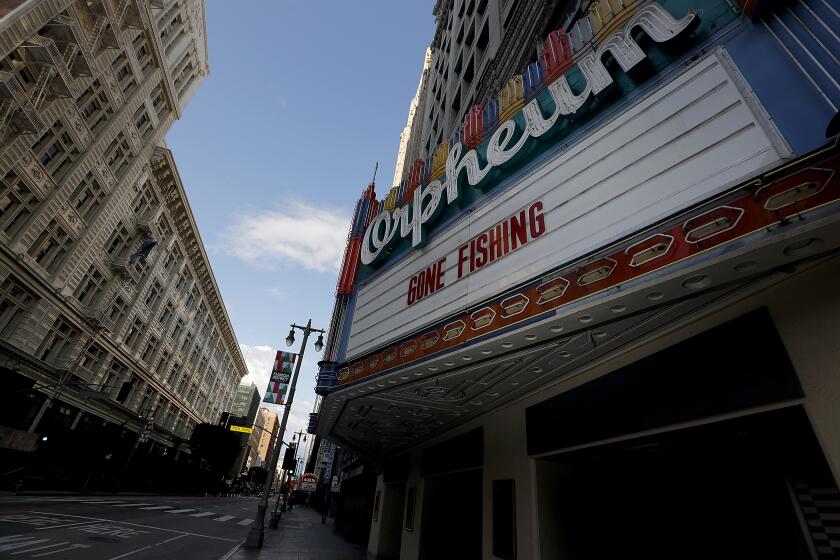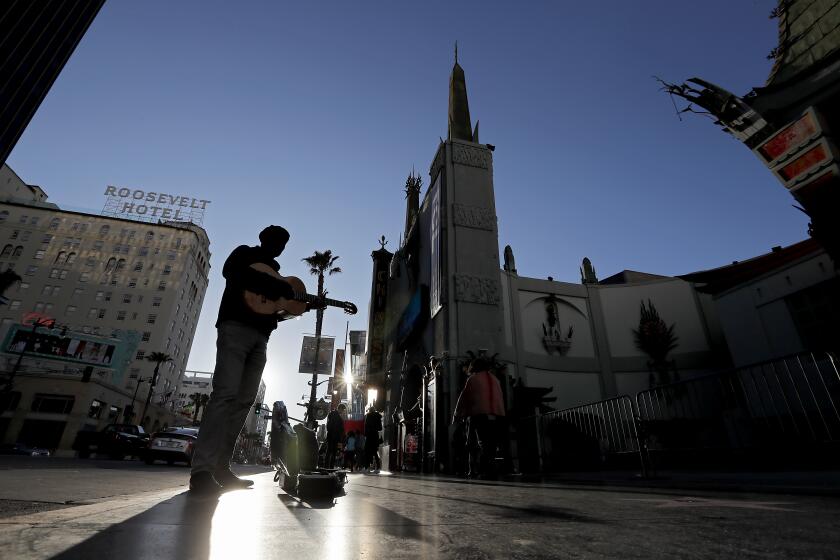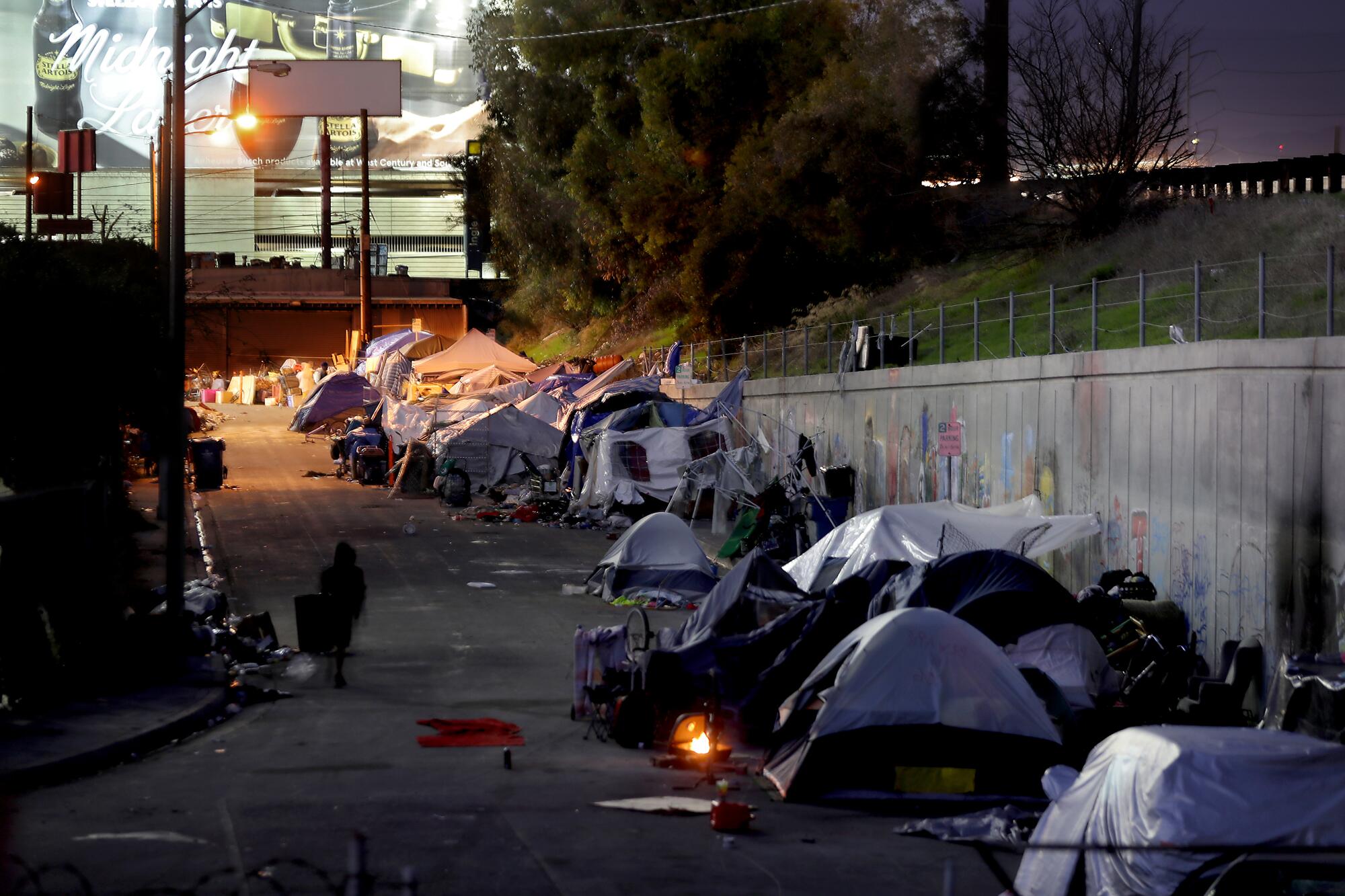
Sometimes it can feel like driving through the Great Depression. Only, it’s Southern California in the year 2021.
Homeless encampments — modern-day Hoovervilles — are steadily spreading across the vast sprawl of Los Angeles.
The scenes evoke John Steinbeck’s classic novel “The Grapes of Wrath.”
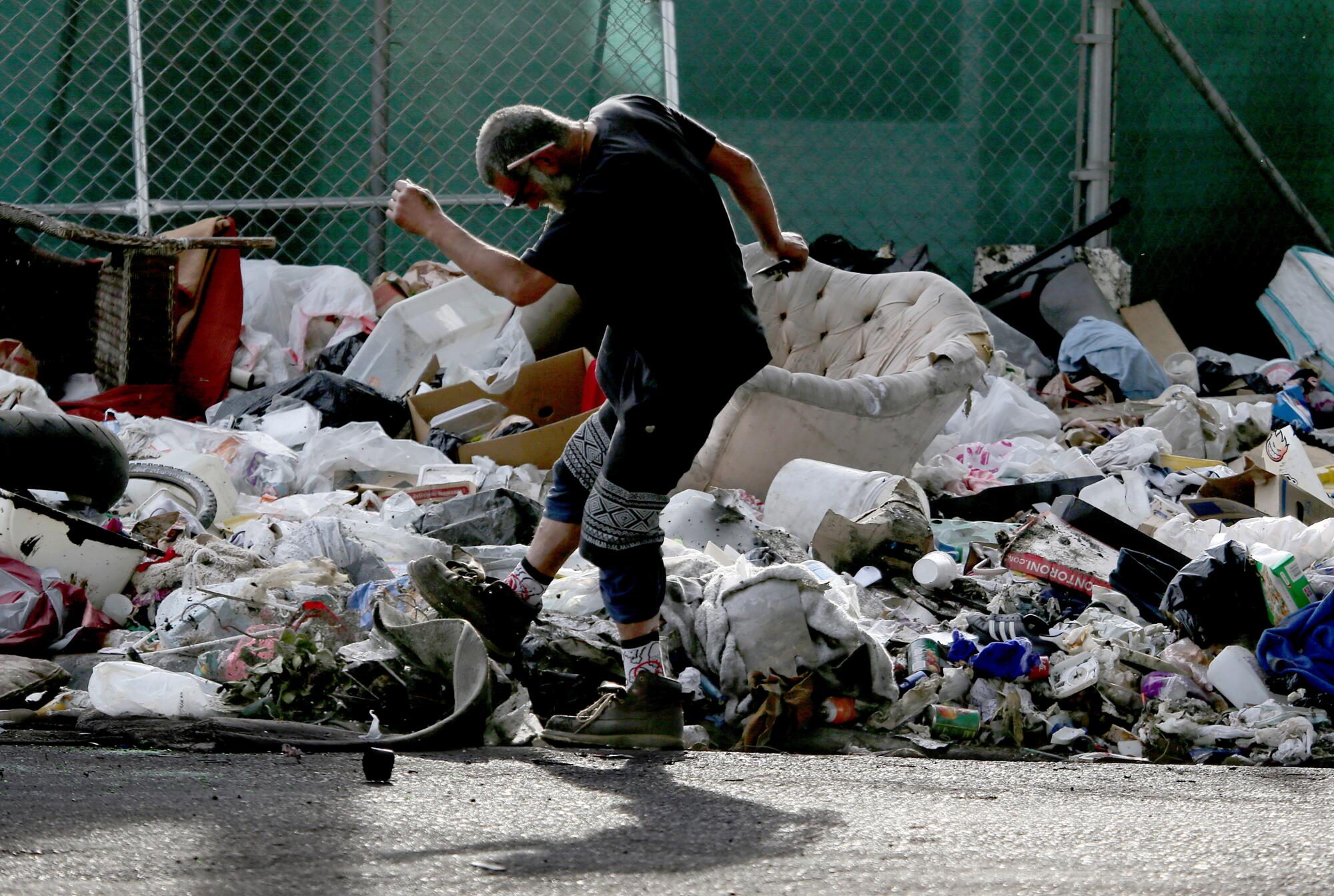
“There ain’t no sin and there ain’t no virtue. There’s just stuff people do.”
— John Steinbeck
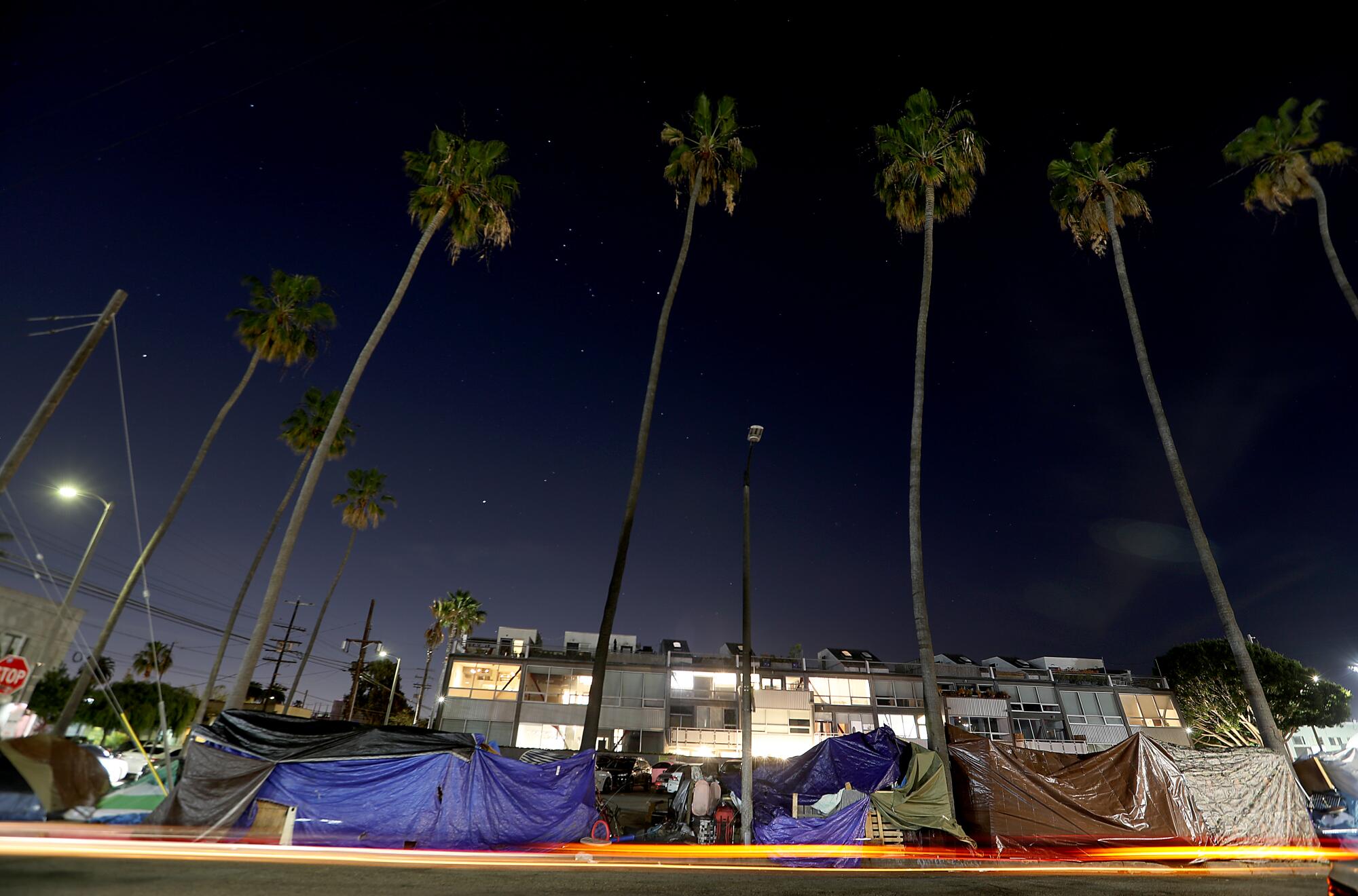
The 2020 Greater Los Angeles Homeless Count indicated that more than 66,000 people in Los Angeles County were experiencing homelessness. Some are living on the streets of L.A., hunkered down in dilapidated campers, tents or makeshift hovels of cardboard, wooden pallets and plastic tarps.
Trash piles up beside skeleton frames of shopping carts and bicycles.
As we all adjust to our new lives under the umbrella of the coronavirus, Los Angeles Times photographer Luis Sinco gives us a look at downtown Los Angeles with the spotlight on Broadway.
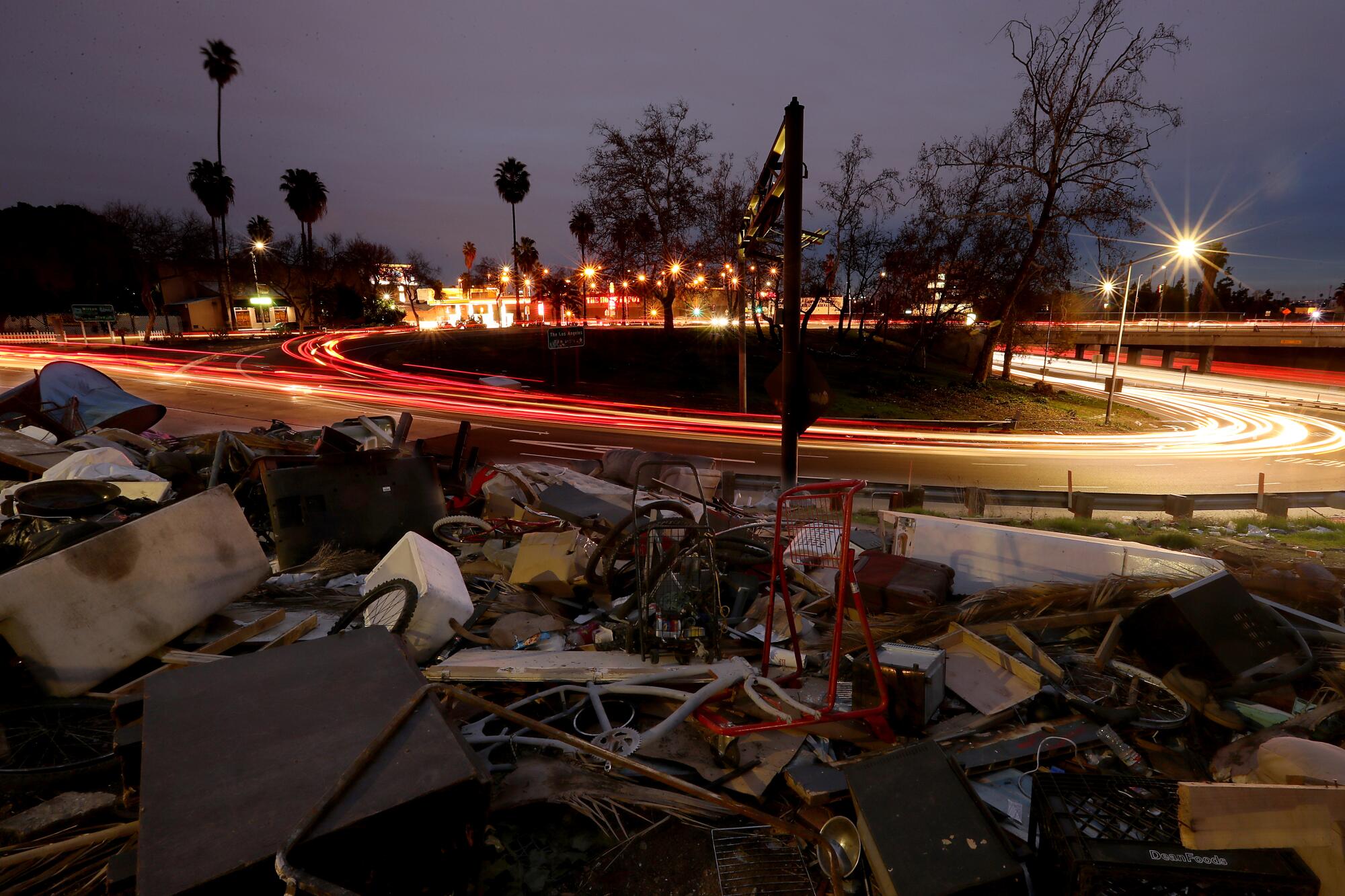
In 2016, voters approved Proposition HHH, the sale of $1.2 billion in bonds to help finance thousands of units of housing for homeless and low-income people in Los Angeles.
In the four years since the first bonds were issued, only seven projects with a total of 489 units have been completed and occupied.
Project sites cause anxiety and animosity among neighbors.
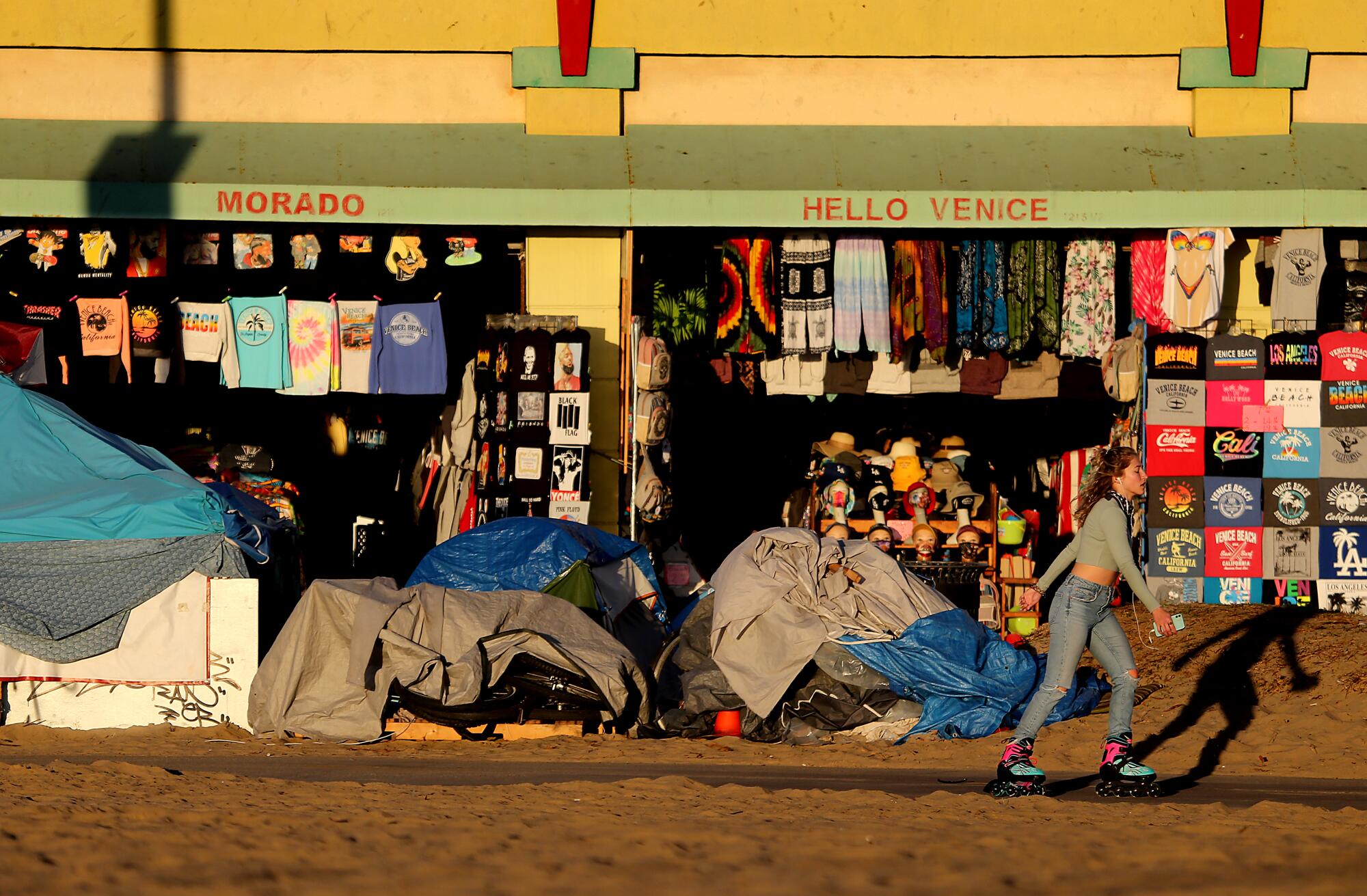
Photographer Dorothea Lange said the camera was an instrument that taught people how to see without a camera.
Lange worked with the Farm Security Administration to document the Great Depression in the 1930s.
Scenes reminiscent of her images of displacement and poverty are materializing all around us today.
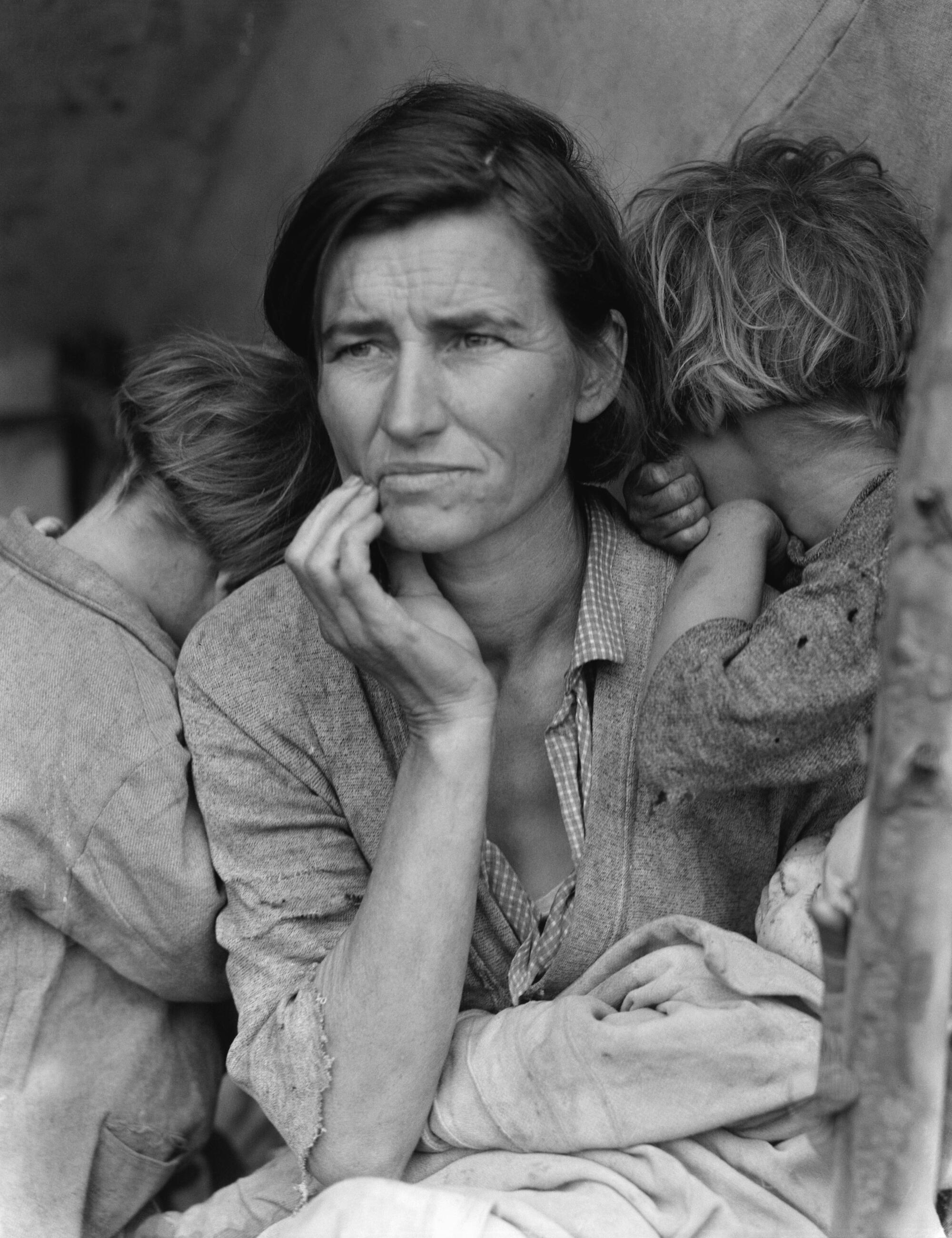
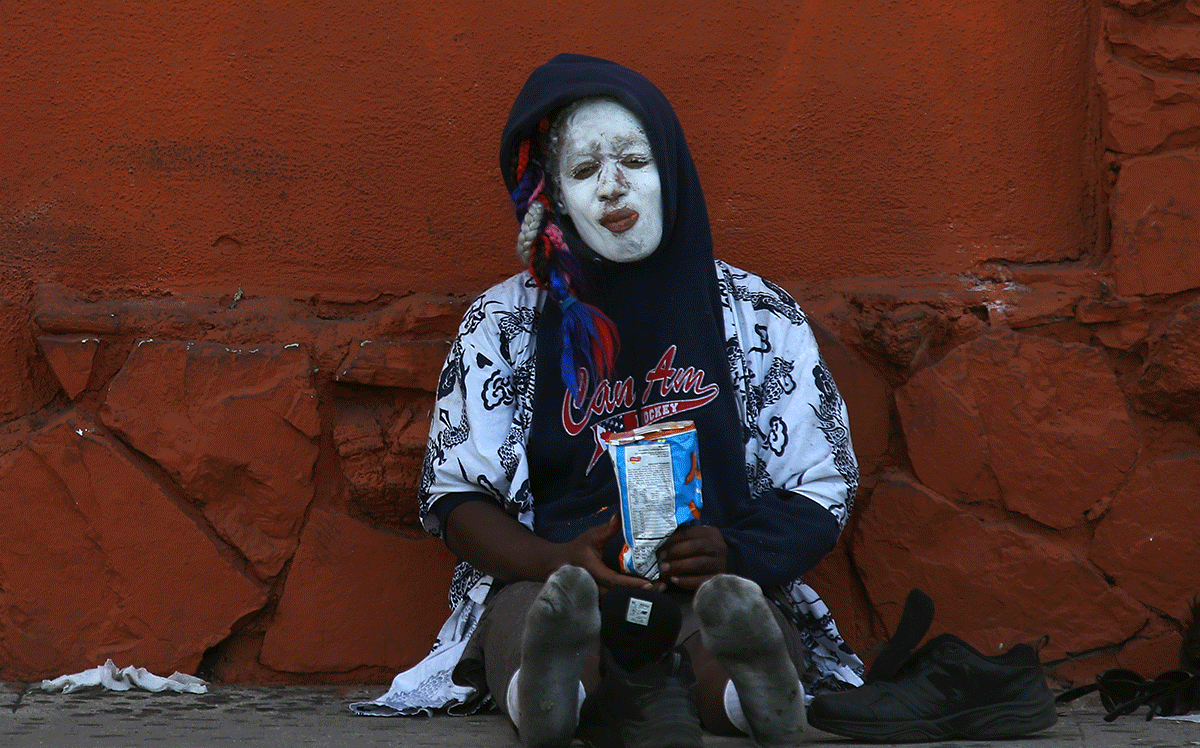
“How can we live without our lives? How will we know it’s us without our past?”
— John Steinbeck
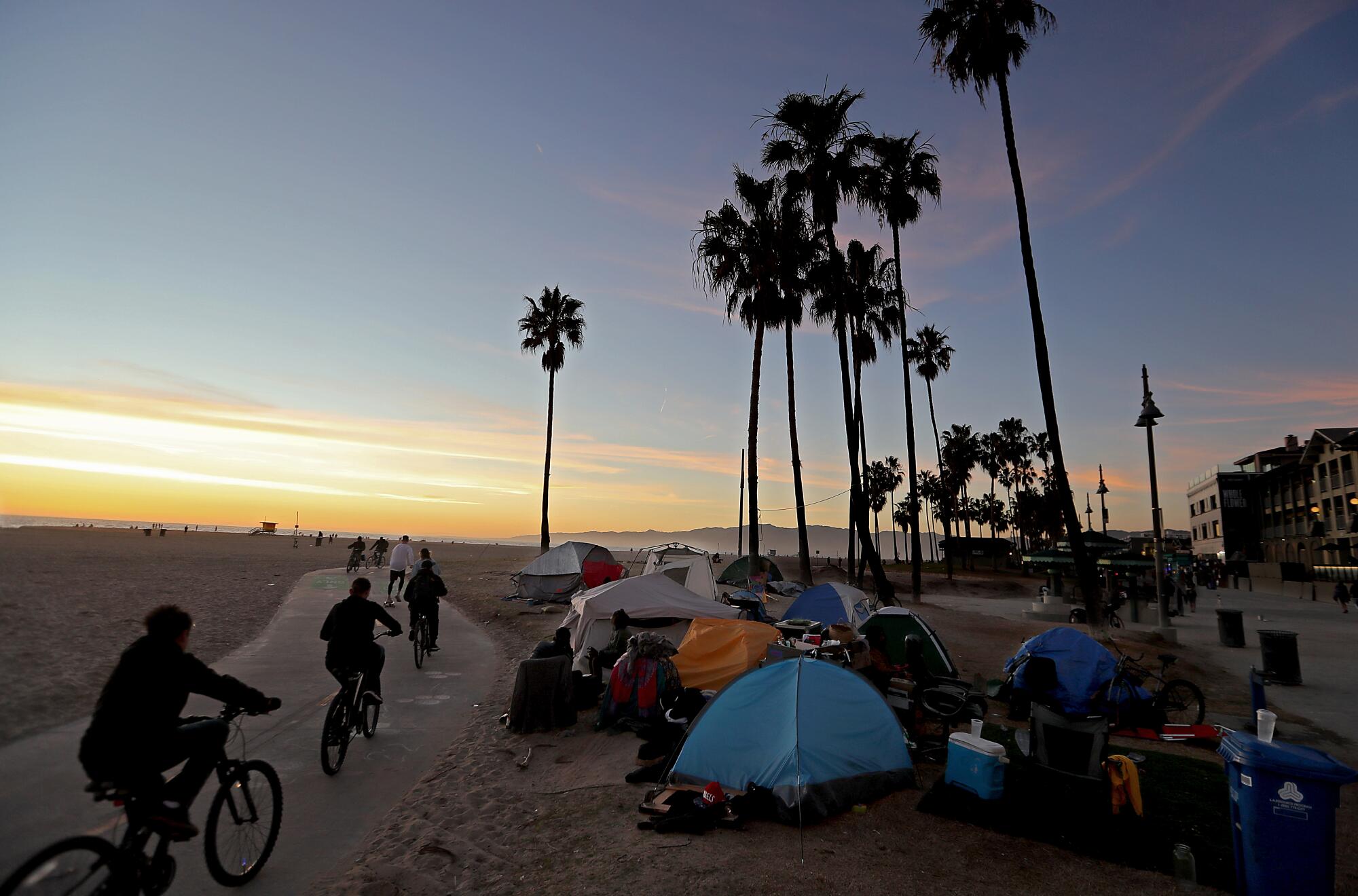
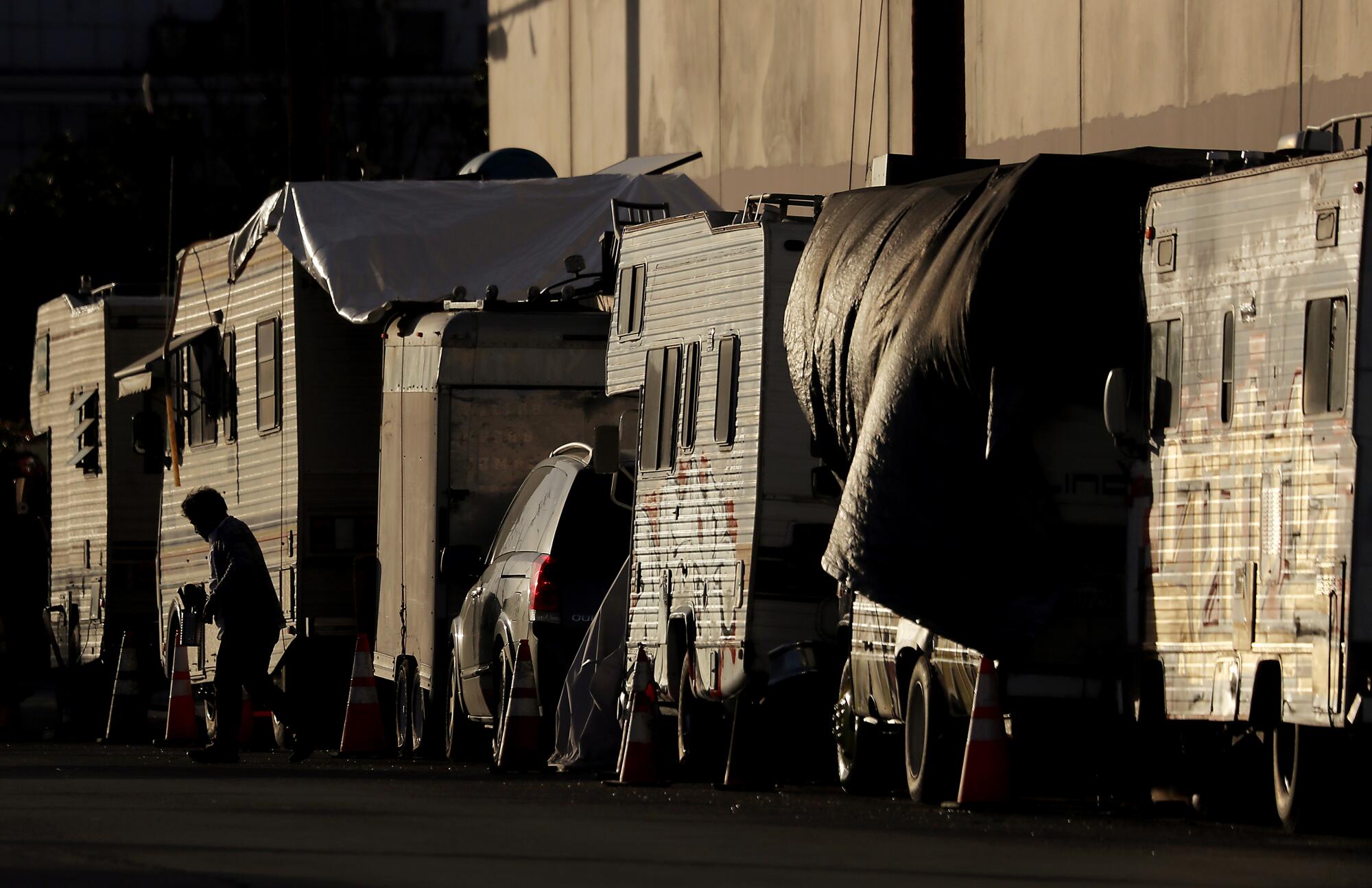
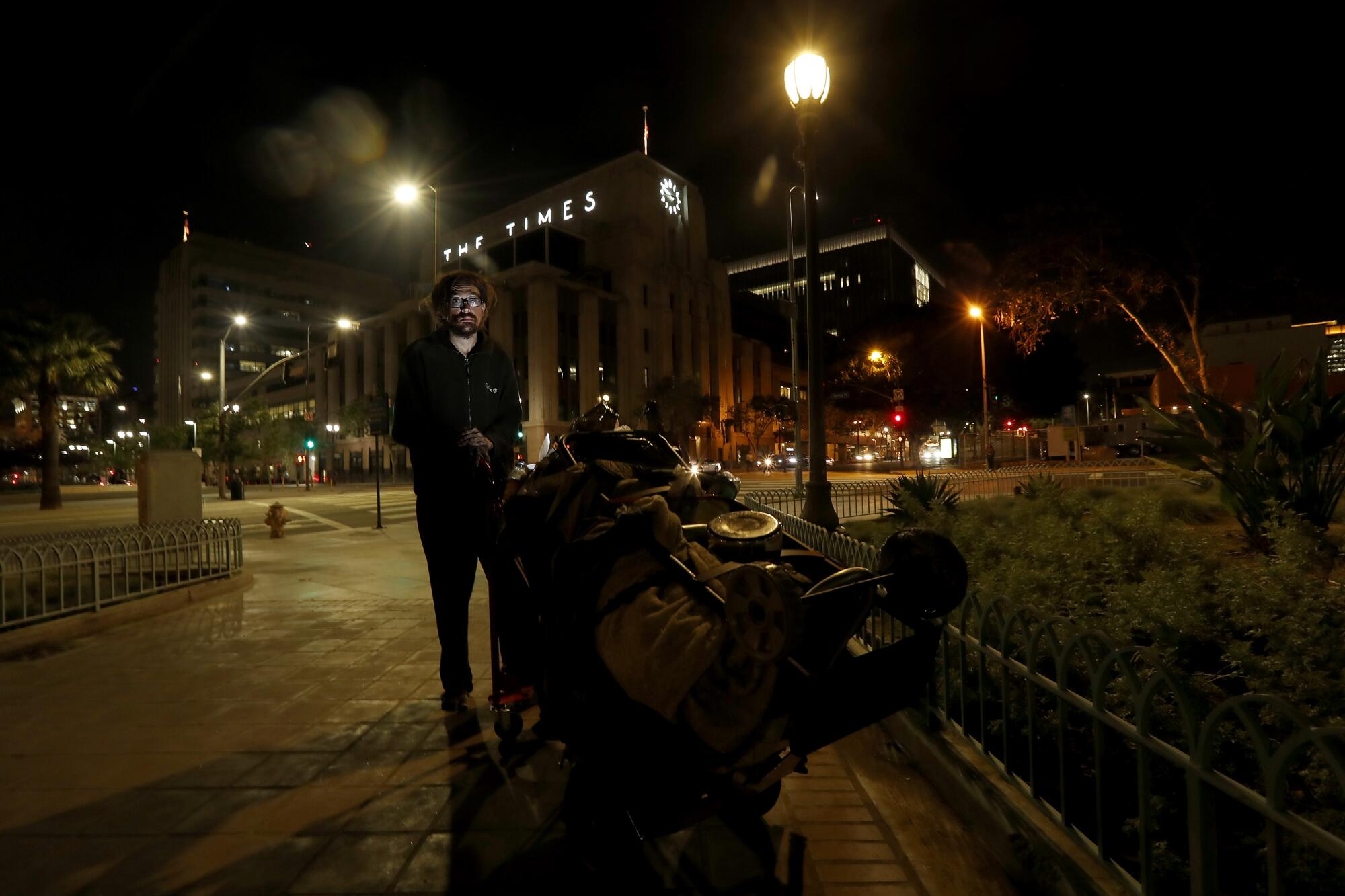
Here’s a visual look at how life in Southern California has changed during the coronavirus crisis.
More visual journalism from the Los Angeles Times
More to Read
Sign up for Essential California
The most important California stories and recommendations in your inbox every morning.
You may occasionally receive promotional content from the Los Angeles Times.
